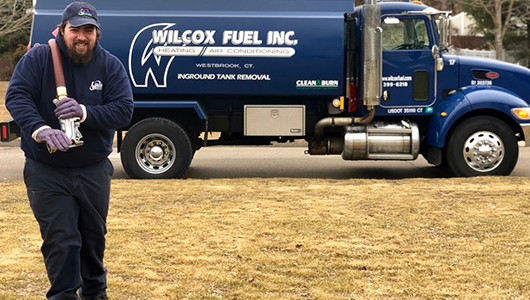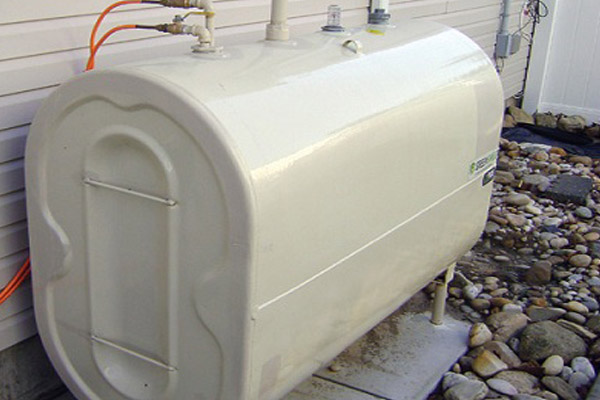Contents

In the United States, around 5.5 million people use oil for home heating, and 81% of these Americans are in the Northeast. People who utilize oil have an oil tank as a crucial part of their system. Naturally, oil-heat users usually take an interest in home heating oil topics such as the best methods to keep their oil tanks in good condition. Most people who use heating oil have heard of additives, while others already utilize heating oil additives. Keep reading to learn all you can about fuel oil additives.
Different Kinds of Heating Oil Additives
Heating oil additives are chemicals made to enhance the heating oil burners’ efficiency. Additives improve combustion, resulting in a cleaner and more efficient heating system function.
Home heating oil comes in four primary types:
- Stabilizers
- Water controller
- Biocides
- Line and oil nozzle cleaners
The heating oil stabilizers protect the oil from degradation caused by external environmental factors, including antioxidants. Water emulsifiers help lower the issues from water condensation in the tank.
Biocides also offer treatment for microbial growth in the tank. The line and oil nozzle cleaners cleanse the fuel delivery tube, where the oil passes from the tanks to the burners. Moreover, cleaners get rid of the sludge that may have developed over time at the tank’s base.
Related Article: Why Use A Ductless Air Conditioner For An Oil-Heated Home Without Ducts?
What Do We Use Heating Oil Additives For?

At the onset, we may consider why home heating oil additives are required. Keep in mind that your home utilizes refined crude oil.
Today, crude oil undergoes a different process than how it used to in the past. This is thanks to the manufacturers who take the environmental impact into consideration. It is also due to the growing demand for low-sulfur diesel.
The changes affected the fuel, creating a less stable fuel with high carbon residue. Manufacturers enhanced and upgraded the additives’ chemical composition to counteract these changes and better the fuel’s attributes.
If you are having trouble with sludge buildup, high usage costs, clogged fuel lines, and a frozen oil tank, consider using heating oil additives.
How Do Fuel Oil Additives Work?
Oil goes through a refining process, causing its attributes to change. This also leads to the development of impurities in the fuel. Impurities like dirt, soot, and water droplets can impact the oil tank. Keep in mind that contaminants in your tank mean the system’s efficiency will plunge.
The good news is that additives can help remove impurities and bring back your system’s efficiency. Additives facilitate the water droplets’ emulsification, preventing bacteria from growing.
The chemical composition of additives lets them break down impurities so they can pass through the filter of the tank without clogging it. Additives can make pollutants smaller, so they can be burned off and removed from the system.
Related Article: Home Heating Oil: Top Tips For Summer
Common Issues Fixed by Heating Oil Additives

Are oil additives cost-effective? Here are several cases about the challenges you may encounter and answers for solving these issues.
Related Article: Can I Really Use Diesel Fuel in My Home Heating Oil Tank?
Clogged Burner Nozzle
The burner nozzle in your tank can become clogged if carbon or other chemical components accumulate. Clogs keep the heating system from effective fuel combustion because the burner nozzle is responsible for the oil spray.
These additives typically include cleaning components used to dissolve the chemical buildup. This way, the burner nozzle operates more efficiently.
Related Article: How to Read Your Heating Oil Tank Gauge
Excess Oil Tank Condensation
Excessive condensation in the tank means the interior components can start rusting, and bacteria can grow. Additives will emulsify the water and prevent bacteria growth.
Additional additives can reduce more water quantities from the system. This helps you avoid rusting in your tank, which can cause other problems.
Gelling of Heating Oil
Low temperatures can contribute to oil gelling. When heating oil gels, it cannot flow smoothly from the tank to the burner. It often leads to the filters, fuel lines, and nozzles clogging.
Anti-gelling additives help in lowering the temperature when gelling happens in the fuel. Individuals living in colder regions will enjoy this perk.
Related Article: The Best Ways To Prevent Running Out Of Heating Fuel This Winter
Sludge Buildup in the Oil Tank

If the bottom of the tank has sludge buildup, it has clogged filters and lines. This buildup lowers your tank’s heat production ability and may result in a faulty tank or stop working completely. If you need to shut off your heat to keep the lines from clogging during a heating oil delivery, your tank has a sludge problem.
An additive made to dissolve sludge accumulation will help the heating oil dissolve the sludge. The oil can also absorb the sludge again so that it burns off. This way, the tank can work normally again.
Disadvantages of Using Heating Oil Additives
The benefits of utilizing heating oil additives far outweigh the disadvantages. However, you should still know the likely negatives they have.
- Oil additives cannot remove all water in your system. Call an HVAC technician for professional assistance if you tried an additive but not all the water was removed.
- Be careful of additives with alcohol because they can cause other problems.
- If your tank has plenty of sludge and you utilize a line and oil nozzle cleaner for cleansing, it can get clogged. Call an expert as soon as this happens to prevent more damage.
Remember that no single additive can fix all the tank issues you may have. You may need to use a combination of additives to resolve the issues. It may be costly, but utilizing different additives enhances the tank’s efficiency and helps you save money. Talk to an HVAC professional to ensure you follow the guidelines for optimal tank performance.
Related Article: Clean Energy Fuels: How Renewable Biofuels Can Help Solve The Climate Crisis
Call Wilcox Energy For Reliable Heating Oil Deliveries & HVAC Services

For top-notch service and competitive prices on heating oil deliveries and HVAC services, contact Wilcox Energy as soon as possible.
We offer a broad range of fuel delivery plans and financing options, which allow you to customize your oil deliveries to meet your specific needs. We also deliver Bioheat® heating oil, a blend of ultra-low sulfur heating oil and biodiesel. This liquid renewable fuel makes your home more eco-friendly and your heating system more efficient. It comes to you without any added cost. In addition, we perform heating system repairs and maintenance for the purpose of enhancing the overall efficiency and functionality of all your home heating equipment. Contact Wilcox Energy for all of your residential heating needs. Click the link to view our service area.
For more information about our heating oil deliveries or HVAC services, be sure to contact Wilcox Energy. You can click here to contact us or call us at (860) 399-6218. Call now!
